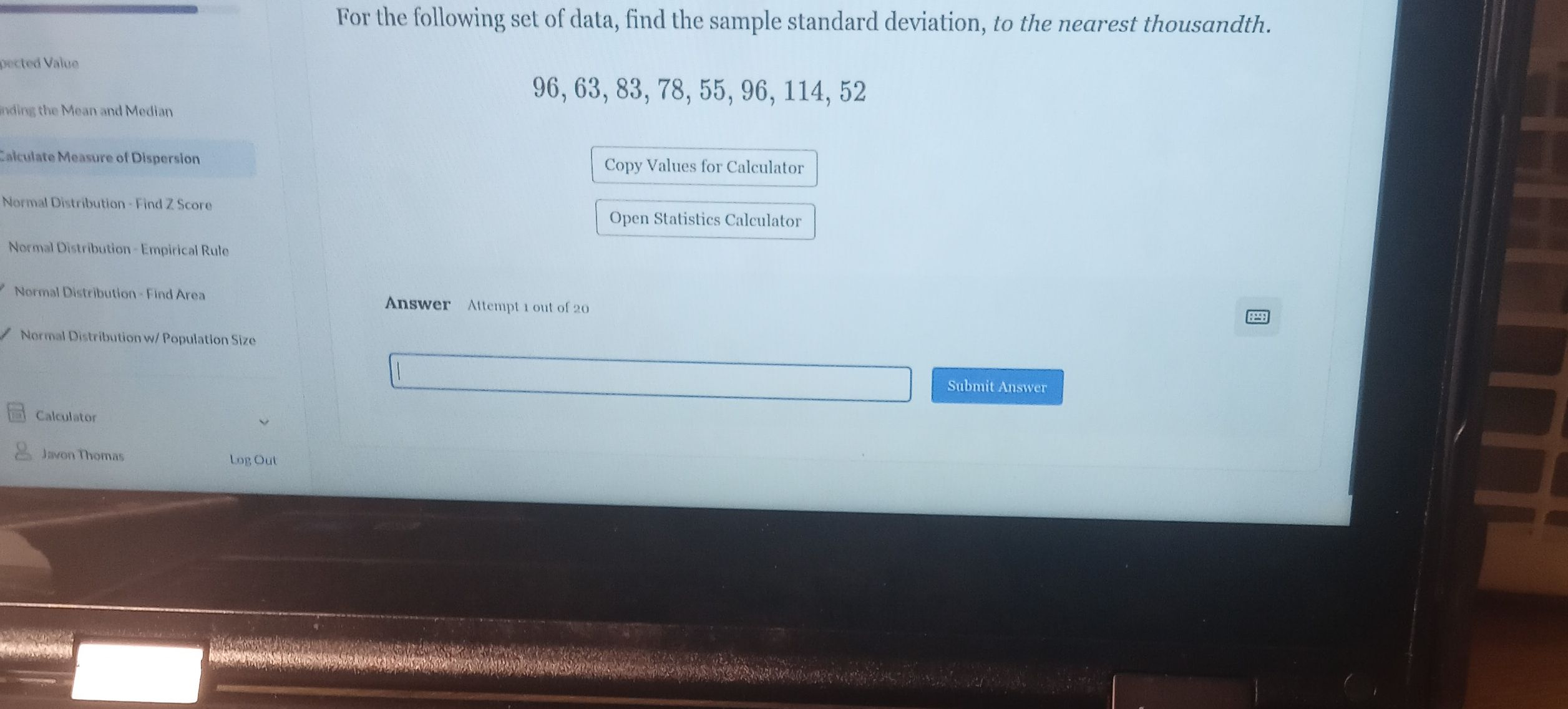Full solution
Q. For the following set of data, find the sample standard deviation, to the nearest thousandth.
- List Data Set: List the given data set and verify its correctness.The given data set is: .We need to ensure that all values are correctly listed and there are no duplicates or missing values unless intentionally repeated.
- Calculate Mean: Calculate the mean (average) of the data set.To find the mean, sum all the values and divide by the number of values.Mean = Mean = Mean =
- Subtract and Square: Subtract the mean from each data value and square the result.This step is part of calculating the variance, which is the average of the squared differences from the Mean.Squared differences:
- Sum Squared Differences: Sum the squared differences.Sum of squared differences = Sum of squared differences =
- Calculate Variance: Divide the sum of squared differences by the sample size minus one to get the sample variance.Since we have data points, we divide by ( for a sample standard deviation).Sample variance = rac{3384.125}{7}Sample variance =
- Calculate Standard Deviation: Take the square root of the sample variance to get the sample standard deviation.Sample standard deviation = Sample standard deviation
- Round Standard Deviation: Round the sample standard deviation to the nearest thousandth.Rounded sample standard deviation =
More problems from Identify discrete and continuous random variables
QuestionGet tutor help
QuestionGet tutor help
QuestionGet tutor help
QuestionGet tutor help
QuestionGet tutor help
QuestionGet tutor help
QuestionGet tutor help
QuestionGet tutor help
QuestionGet tutor help
QuestionGet tutor help

